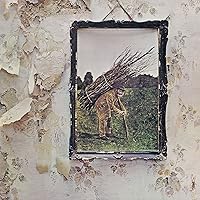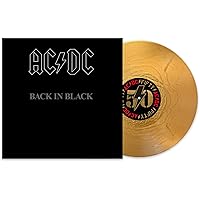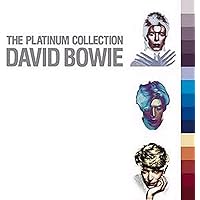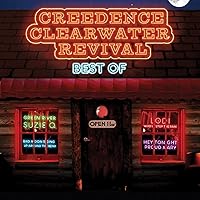Nuovo:
10,99€10,99€
Disponibilità immediata
Spedizione
Amazon
Venditore
Amazon
Resi
Restituibile, se richiesto entro 14 giorni dalla consegna.
Pagamento
Transazione sicura
Risparmia con Usato - Ottime condizioni
4,47€4,47€
Immagine non disponibile
Colore:
-

-
-
- Ci dispiace. Questo articolo non è disponibile in
- Immagine non disponibile
- Per visualizzare questo video scarica Flash Player
Remasters
2 CD
Restituisci questo articolo gratuitamente
Il reso gratuito è disponibile per l'indirizzo di spedizione scelto. È possibile restituire l'articolo per qualsiasi motivo in condizioni nuove e non usate senza costi di spedizione del reso.
Scopri di più sui resi gratuiti.- Accedi alla sezione "resi e ordini" per procedere con la restituzione
- Seleziona il metodo di restituzione
- Spedisci il reso!
Maggiori informazioni
| Prezzo Amazon | Nuovo a partire da | Usato da |
|
Vinile, Importazione
"Ti preghiamo di riprovare" | — | 131,91 € |
 Questo articolo è acquistabile con il Bonus Cultura quando venduto e spedito da Amazon. Sono esclusi prodotti di Venditori terzi del Marketplace. Il Bonus è strettamente personale e può essere utilizzato esclusivamente dal suo titolare. Verifica i termini e condizioni. |
Spesso comprati insieme

Cosa hanno acquistato i clienti dopo aver visto questo articolo?
Descrizione prodotto
I Led Zeppelin nascono dalle ceneri degli Yardbirds. Jimmy Page si era unito alla band nei suoi ultimi giorni, giocando un ruolo fondamentale nell'ultimo album del gruppo, Little Games del 1967, che conteneva anche arrangiamenti per archi di John Paul Jones. Nel corso del 1967, gli Yardbirds erano abbastanza inattivi. Mentre i membri della band decidevano il futuro del gruppo, Page tornò al lavoro in studio nel 1967. Nella primavera del 1968, suonò sull'arrangiamento di Jones di "Hurdy Gurdy Man" di Donovan. Durante le sessioni, Jones ha chiesto di far parte di qualsiasi progetto futuro che Page avrebbe sviluppato. Page avrebbe dovuto mettere insieme una band prima di quanto avesse pianificato. Nell'estate del 1968, Keith Relf e Jim McCarty degli Yardbirds se ne andarono, lasciando a Page e al bassista Chris Dreja i diritti sul nome, così come l'obbligo di portare a termine un imminente tour autunnale. Page ha deciso di trovare un cantante e un batterista sostitutivi. Inizialmente, voleva arruolare il cantante Terry Reid e il batterista dei Procol Harum B.J. Wilson, ma nessuno dei due musicisti era in grado di unirsi al gruppo. Reid suggerì a Page di contattare Robert Plant, che cantava con una band chiamata Hobbstweedle.
Dettagli prodotto
- Fuori produzione : No
- Dimensioni prodotto : 14,3 x 12,6 x 0,99 cm; 111,98 grammi
- Produttore : Warner Music
- Riferimento produttore : 780415
- Etichetta : Warner Music
- Garanzia e recesso: Se vuoi restituire un prodotto entro 30 giorni dal ricevimento perché hai cambiato idea, consulta la nostra pagina d'aiuto sul Diritto di Recesso. Se hai ricevuto un prodotto difettoso o danneggiato consulta la nostra pagina d'aiuto sulla Garanzia Legale. Per informazioni specifiche sugli acquisti effettuati su Marketplace consulta la nostra pagina d'aiuto su Resi e rimborsi per articoli Marketplace.
- ASIN : B000026C3T
- Paese di origine : Italia
- Numero di dischi : 2
- Posizione nella classifica Bestseller di Amazon: n. 334 in CD e Vinili (Visualizza i Top 100 nella categoria CD e Vinili)
- n. 3 in Blues Rock
- n. 6 in Musica Hard Rock
- n. 30 in Rock classico (CD e Vinili)
- Recensioni dei clienti:
Recensioni clienti
Le recensioni dei clienti, comprese le valutazioni a stelle dei prodotti, aiutano i clienti ad avere maggiori informazioni sul prodotto e a decidere se è il prodotto giusto per loro.
Per calcolare la valutazione complessiva e la ripartizione percentuale per stella, non usiamo una media semplice. Piuttosto, il nostro sistema considera cose come quanto è recente una recensione e se il recensore ha acquistato l'articolo su Amazon. Ha inoltre analizzato le recensioni per verificarne l'affidabilità.
Maggiori informazioni su come funzionano le recensioni dei clienti su AmazonRecensioni con immagini
-
Migliori recensioni
Recensioni migliori da Italia
Al momento, si è verificato un problema durante il filtraggio delle recensioni. Riprova più tardi.
Consigli l'acquisto.
Le recensioni migliori da altri paesi
Based on comments on various Zepp CD and LP releases, this CD-set might not be the ultimate, but when played through my Topping D10-S, it's plenty good for me, and I hated CDs until about 2016, when affordable CD-playback in general finally started to sound good. The cymbals are as clean as anything I've heard on ANY recording (you can even hear the brassy shimmering), at least where it matters. There is some grunge from the analog master in some loud passages, but it doesn't bother me.
Hopefully, the following information will help some readers to overcome the disinformation which has been spewed about various aspects of digital audio since its inception, just to make money, which has led many to give up on digital audio. I gave up on CDs for over a decade due to the belief that "CD sound" (a subtle but irritating artificiality and sheen) was inherent to CDs, which was based on my experience with CDs, and the fact that some high-end reviewers used the term "CD sound." They should have known better, with their access to cost-no-object DACs and CD-players. But according to undeniable, trustworthy experts, such as Goldman Labs (famous for their $300K turntables) and Dr. Aix (famous for his high-res recordings), CDs themselves have the potential to sound at least as good as any format.
However, early brick-wall anti-aliasing filters on 44.1 kHz non-oversampling decks caused a dry/smeared high end and mediocre spaciousness/imaging (which can be heard very easily in the cymbals on the Herbie Hancock Quartet CD, a jazz standard which is otherwise fantastic) until they were replaced by Apogee's 924 and 944 aftermarket filters, starting in about September of 1985. Eventually, the early digital recordings made with non-oversampling decks with lousy input filters were replaced, if there were analog masters, by recordings made with clean digital recorders, although not necessarily from clean analog masters. Recordings which were recorded directly to digital with lousy input filters, without also recording directly to analog just in case digital turned out to have problems, obviously can't be fixed. So, the "perfect sound forever" mantra took a toll.
Non-oversampling decks with a sampling rate of 48 kHz or higher had good phase linearity even before Apogee filters became available. The 3M system had a 50 kHz sampling rate and replayed its recordings through the DACs used as part of the ADCs, giving it perfect net amplitude-linearity and legendary sound quality. But the recordings had to be recorded and played on the same deck for the best sound quality, which isn't the best approach for long-term archiving, especially since the 3M's reliability left something to be desired.
In about 2006, asynchronous sample-rate converters (ASRCs) were introduced, and it became possible to make 44.1 kHz recordings from 48 kHz recordings, and from very early digital recordings with a variety of sampling-rates, without converting to analog and then back to digital, and without adding significant distortion. There were earlier SRCs which could convert between certain sampling-rates, but clearly they weren't satisfactory in all cases.
16-bit oversampling decks, which use sigma-delta ADCs, a.k.a. "1-bit" ADCs, referring to the pulse-density-modulated (PDM) carrier at the output of the modulator stage, have been available commercially since 1982 (JVC's stereo ADC, the VP-900). Sony's 24-channel oversampling deck, the PCM 3324, was introduced in 1984 and became the industry standard (it would have been introduced in 1981, but was delayed for three years by the industry's need to edit by physically cutting and splicing the tape, which required Sony to devise a complex encoding scheme). A few years later, the PCM 3348, which put 48 tracks on a half-inch tape, was introduced. The main advantages of oversampling converters is that a) their high sampling rate allows them to use simple, low-distortion input filters with a linear phase response in the audio range; b) they're inherently linear to the specified number of bits; and c) they can provide perfect channel-matching, because the channel-characteristics are determined by a digital process, which is identical for each channel. When the PCM is converted back to analog with a sigma-delta DAC, it's first converted back to high-frequency, high-resolution PDM, to avoid the need for brick-wall output filters. The loss incurred by converting between PDM and PCM is insignificant, although it should be kept to a minimum. If you need more detail, there are plenty of online explanations.
So, there have been excellent digital decks suitable for dubbing analog masters (stereo or multi-track) to 16-bit digital since the dawn of the digital era, and there are indications that some groups secretly did so in order to preserve their master recordings, but that they reserve such recordings for release on LPs to retain control over them, since they could be copied perfectly if they were put on CDs. (Software is stored on CDs, and it can't have a single bit-error. Software does have an extra layer of error-correction, but it's rarely needed.) These groups make their CDs from inferior masters, such as old analog masters which have been used a lot, or masters with an inferior mix. As much as I'd like to check out some LPs, I refuse to get back into vinyl, because it's too expensive and inconvenient.
However, it appears that CD-players were deliberately crippled with "CD sound" (a subtle but irritating artificiality and sheen) to keep selling us bogus "solutions" year after year, until the CD's reputation was almost destroyed and CD-sales began to tank. In 1984, Dr. Roger Lagadec identified its cause as pre-ringing, a.k.a. "pre-echo" or "dispersion," related to passband-ripple in the digital interpolation filters (DIFs) on DAC-chips, and provided solutions (for details, see Julian Dunn's online paper on anti-aliasing filters). (High-res FLACs don't require as much interpolation as CDs, perhaps partly explaining their reputation for superior sound quality.)
Yamaha apparently took Dr. Lagadec seriously, and used external digital filters in their 1980s line of "natural sound" CD-players, which included one in the $400 range as I recall, and which I learned decades later had good sound quality. (External digital filters were high-performance DIFs on separate chips, which are rarely used these days even in high-end players, due to advancements in the DIFs on DAC-chips.) However, there was apparently a cover-up to prevent as many people as possible from learning the actual cause of "CD sound," and that the audio-gear industry could have eliminated it if it wanted to do so. This cover-up apparently included audio reviewers and even Yamaha, whose ads attributed "natural sound" to the use of short signal paths, which has always been a common design practice. After reading this ad, I dismissed "natural sound" as an ad slogan and Yamaha as overpriced Japanese junk.
I gave up on CDs from 2004-2016 due to my belief that "CD sound" was inherent to CDs, and then accidentally listened closely to a CD of Beethoven's 9th being played on KUAT, and realized that there was no "CD sound." So, I investigated, and found an article by Robert Harley of the Absolute Sound which mentioned that CD-sound had been eliminated by tweaking the DIFs on DAC-chips, and that it constituted a revolution in CD-playback. So, in 2018, I gambled $100 on a lossless player with Sabre 9018 DAC-chips, which amazed me. A couple of years later, I got an upgraded version with 9028's, and a few months later, a D10-S, which uses 9038's. Although I'm satisfied with the D10-S, the best DACs cost at least $1K.
Now that the problems with CD-playback are history, the only thing holding CDs back is the quality of the analog signal fed into the digital recorder, but that's not a significant issue with the Remasters CDs.
Dettagli sulla conformità del prodotto
Vedi i dettagli di conformità per questo prodotto(Persona responsabile dell'UE).



 Apri il Web Player
Apri il Web Player


















